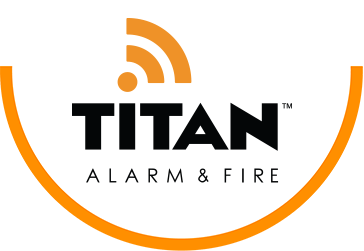
As a business owner, you know how important it is to protect your assets and minimize expenses. One critical yet often overlooked aspect of risk management is fire alarm maintenance, which helps you keep occupants safe, comply with safety regulations, lower the risk of fire-related damage and save you on insurance premiums. When you opt for routine fire alarm maintenance, you keep your system functioning to protect your property from damage — making your business an attractive candidate for lower rates.
Read on to explore how routine fire alarm maintenance can improve your safety and cut insurance costs, and steps for implementing an effective fire alarm maintenance program.
The Connection Between Fire Alarm Maintenance and Insurance Costs
For commercial property owners, the importance of fire alarm systems and maintenance extends beyond their immediate role in fire detection and safety. These systems also influence insurance premium costs. As insurance companies assess risks associated with insuring your property, having a well-functioning fire alarm system can play a pivotal role in lowering your insurance costs.
Insurance Premium Reduction
The relationship between fire alarm systems and insurance premiums is grounded in risk mitigation. Insurance companies strive to minimize risk and, in turn, view fire alarm systems as essential in preventing or reducing the severity of fires. Consequently, they typically deem properties with effective firm alarms low risk, reflecting lower insurance premiums.
For example, say you’re a retail shop owner who regularly maintains your fire alarm system, experiencing fewer false alarms and actual fire incidents. The proactive approach leads to a clean claims history over three years, prompting your insurer to reduce premiums by 25% during the policy renewal process. By investing in proactive fire alarm maintenance plans, you save money in the long run to reinvest in your business.
Is a Smoke Detector a Fire Alarm for Insurance Purposes?
While smoke detectors play a crucial role in fire safety, they are not considered equivalent to fire alarms for insurance purposes. Commercial smoke alarms are designed to detect smoke and signal an alarm when smoke is present but often cannot immediately notify emergency services.
In contrast, fire alarm systems are more comprehensive, featuring smoke detectors, heat sensors, manual pull stations and notification devices. Many are connected to a monitoring service to notify emergency responders. Insurers typically offer lower premiums or special discounts and incentives for properties equipped with robust fire alarm systems than those with only smoke detectors.
Importance of Fire Alarm Maintenance
Fire alarm maintenance can help protect your property and assets, comply with safety regulations and prevent costly penalties. The following are the benefits of maintaining your fire alarm system and steps you can follow to meet regulations.
Fire Safety and Prevention

Well-functioning commercial fire alarm systems play a key role in preventing fire damage by detecting smoke, heat or flames and sending out alerts before the fire spreads. These systems include smoke and heat sensors, which can detect the first signs of a fire and help occupants evacuate the building in time. Many systems also integrate with sprinkler systems to control flames and notify emergency services.
However, the fire protection granted to your business is only as good as your fire alarm system, so you must keep it functioning and in good condition. Over time, dust, dirt and other debris can build up inside your fire alarm detector’s sensing elements, causing it to malfunction. The system may not be sensitive enough to send out prompt warnings during a fire. Fire alarm maintenance companies can maintain and test your system to ensure its reliability in fire safety and prevention.
Compliance With Safety Regulations
Your business can avoid citations and fines by complying with local and national safety regulations and implementing a fire alarm maintenance program. The Occupational Safety and Health Administration (OSHA) regulates that all businesses do the following to make sure fire alarm systems perform as expected:
- Operate and maintain your system in working condition and ensure it is always on.
- Test and adjust fire detectors and alarm systems to ensure they work correctly and reliably.
- Replace or clean and recalibrate unreliable detectors or detectors with reduced sensitivity.
- Properly clean dust, dirt or other particulates at regular intervals.
- Have a qualified person service, maintain and test all fire alarm systems.
Scheduling professional fire alarm maintenance services makes adhering to these local and national standards and avoiding costly penalties easier. Qualified technicians can inspect your system, perform routine maintenance and prevent minor issues from becoming hazardous.
How to Implement Effective Fire Alarm Maintenance Plans
For business owners, investing in a comprehensive fire alarm maintenance plan can lead to substantial savings on insurance costs, prevent costly damage or penalties and reduce the risk of injuries or lawsuits in the event of a fire. The National Fire Protection Association (NFPA) recommends annual fire alarm inspections, testing and maintenance to ensure your system works properly:
- System inspections: Fire alarm service companies like Titan Alarm & Fire will come to your business and follow a comprehensive inspection checklist as outlined by OSHA and other regulatory bodies. During these inspections, they’ll identify and address common issues to ensure your fire alarm system functions correctly.
- Preventative maintenance plans: A professional, structured fire alarm maintenance plan is crucial in complying with safety regulations and keeping your occupants and assets safe. Only qualified technicians, especially those with specific training and certification in fire alarm systems, should install, test and maintain commercial fire alarm systems.
- Audits: A fire alarm system audit systematically assesses your building’s fire alarm system. The evaluation can determine its compliance with fire safety regulations and standards, the system’s effectiveness and recommended improvements.
Selecting a reliable service provider is essential in getting quality fire alarm services. Titan Alarm & Fire will inspect your fire alarm system and its components, perform maintenance and ensure it’s up and running to protect your business and maximize cost savings.
Partner With Titan Alarm & Fire for Expert Fire Alarm Support and Maintenance
Ensure your fire alarm system is correctly functioning to protect your business, cut insurance costs and give you peace of mind. Titan Alarm & Fire emerged in the commercial fire and security market in 2010, safeguarding homes and businesses with reliable services and quality safety products. Our experts perform fire alarm maintenance services, including inspections, testing and troubleshooting to detect and correct potential system issues before they become expensive — and potentially life-threatening — problems.
We take pride in being a family-owned business that is 100% local to Arizona. We look forward to partnering with you. Contact us today for expert fire alarm support and services.


















